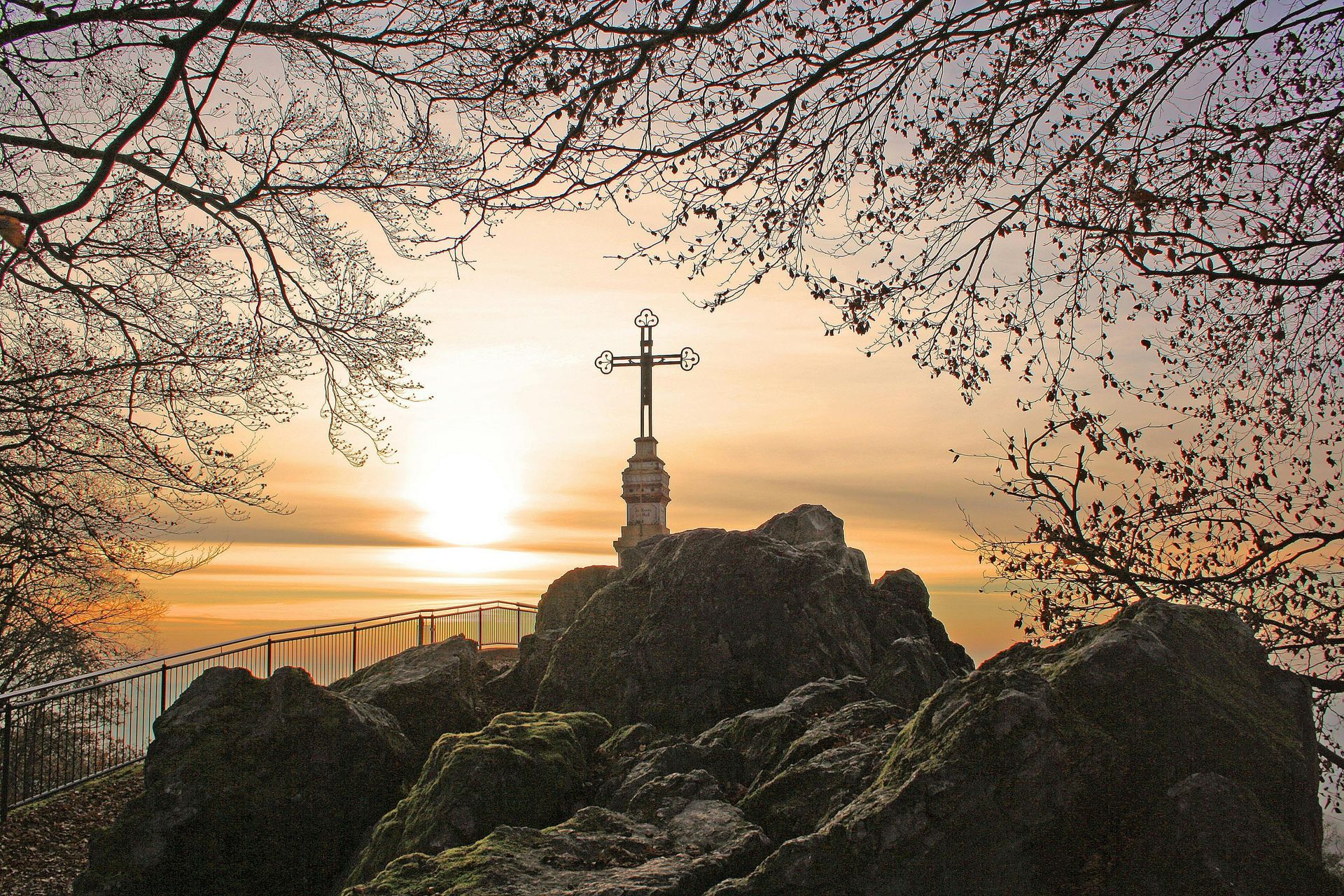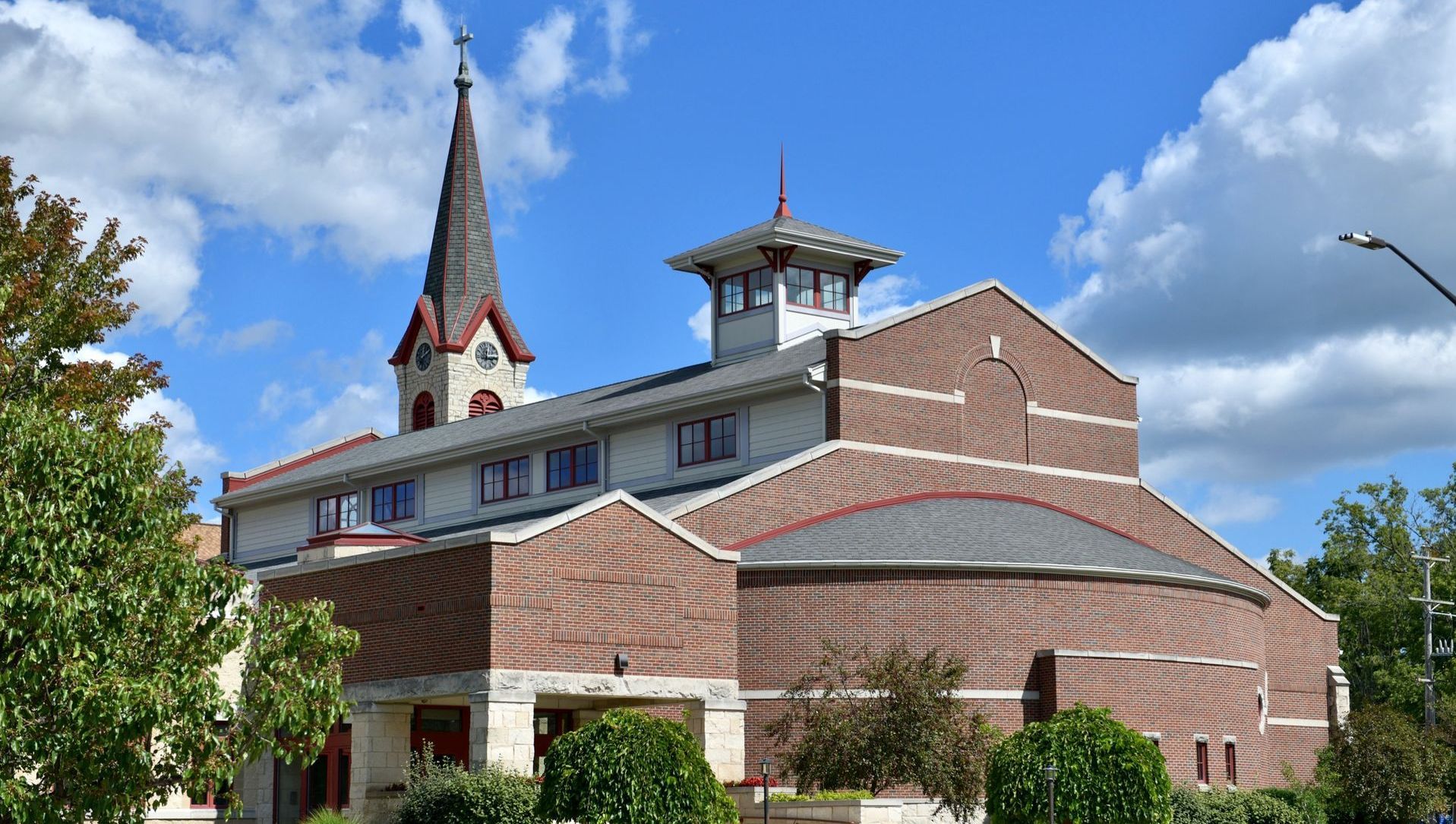100TH ANNIVERSARY OF THE PRIESTS OF THE SACRED HEART IN THE USA
2023 is the year when we celebrate the centennial anniversary of the SCJs in the USA. It is a wonderful opportunity to refresh the history and names of those who brought the congregation of the Priests of the Sacred Heart (SCJ) to our country. St. Martin of Tours parish has its own part of the SCJs history. The SCJs have ministered at our parish for fifty years. However, the SCJs presence in the USA did not begin at St. Martin of Tours in Franklin, WI. The first SCJs presence was established in South Dakota, where the pioneer SCJ missionaries began their ministry to the Lakota People.
The SCJs are also known as Dehonians. Dehonians comes from the name of the founder, Fr. Leo John Dehon, who began this religious congregation in 1878 in France. Dehon built his charism on the spirituality of the Sacred Heart and Jesuit’s discernment. Dehon asked his brothers and priests to leave the sacristies and go out to meet people where they were. He sent his first priests to a local textile factory in Val-des-Bois, and others, to foreign missions in Ecuador and Congo. Dehon was a holy man but also a man of vision and mission. His congregation was attractive and grew fast. Dehonians spread throughout France, and then, moved out to neighboring countries in Europe, Germany, Belgium, Holland, Finland, and Italy. Then, the SCJs moved to Africa, Asia, and South America. At present, the SCJs minister in 40 countries throughout the World. Dehonians moved eventually to the USA one hundred years ago.
The first SCJ who arrived in the USA was Fr. Mathias Fohrman, a Luxembourger priest. He arrived in 1919 but it took time and much effort before the Dehonian presence was stabilized in our country. Fr. Forhman, who is considered the founder of the SCJs in the USA, was invited to South Dakota to serve Native American people. He began his ministry in 1923. Fr. Forhman was soon joined by a bigger group of Dehonian missionaries from Europe.
For the Feast of the Epiphany in 1923, Fr. Fohrman visited Lower Brule, SD and was introduced to the Native American culture. During Palm Sunday on March 25, 1923, Father Fohrman said Mass for the first time at St. Mary’s Church in Lower Brule and the work of the Priests of the Sacred Heart “in service to the mission” began in the United States. The official presence and ministry of the Congregation became a fact and reality. (Claudia M. Duratschek, Builders of God’s Kingdom. The History of the Catholic Church in South Dakota (Chamberlain, SD: Register-Lakota Printing, 1989), 282; see also: Joseph Golden, “Work of Divine Providence” (Cor Unum, November 1951), 10-12).
It is quite significant the day from which the SCJs officially began to count the presence of the SCJs in the USA is that day on March 25, 1923, when Fr. Fohrman celebrated the first Mass in South Dakota. In fact, there were many arguments about which day should be commemorated and written down in the acts (papers) as the day of the beginning of the presence of the Congregation in this country. Wayne Jenkins, SCJ, in his work, We the Congregation in Service to the Mission: Tale of Two Beginnings, provides a detailed history of the US Province, describes the possible beginnings, and dates well. Hence, it is not the day when Fr. Fohrman arrived in America, nor when he arrived in South Dakota, nor when the SCJs decided to establish their first community and bought a house, nor even when the United States was declared as a Province, but instead, it is the day when the SCJs began their ministry among the Lakota people. (Jenkins, We the Congregation, 4-5).
The first Dehonian community spread to other States and missions in the Midwest, Mississippi, Texas, California, and East Coast. It became a large Province in the 70s and 80s. Nowadays, the US Province continues its mission in South Dakota, Wisconsin, Mississippi, Texas, and Florida. We serve parishes and operate schools. We support social service ministries and family
outreach programs. One of our oldest ministries in the United States is St. Joseph’s Indian School in Chamberlain, SD., just a short drive from the location of that first Mass. Through Sacred Heart Seminary and School of Theology in Hales Corners, WI, we prepare men from around the world for ordained ministry and serve lay students through our master’s program. And just as the Dehonian presence in the United States was begun by missionary outreach, the US Province is committed to building the Church by supporting missions throughout the world including Vietnam, India, the Philippines, South Africa, DR Congo, and Indonesia. The Province also invited SCJ members from other countries, ethnic groups and cultures to join and support their missions in the USA. As a result, the US Province became intercultural. Over 30% of their members are international today.
As we celebrate the centennial anniversary of the SCJ presence in the USA, I would like to invite St. Martin of Tours community to take part in our jubilee. We will have many opportunities to learn about the SCJs and our missions. Perhaps some of us will have a chance to visit South Dakota in October for the Mission Education trip at St. Joseph’s Indian School. I am grateful for your support and taking an active part of the Dehonian mission at St. Martin of Tours and throughout the country. If you wish to know more about the origin and SCJs history in the USA, please go to our parish website and find a few articles about it.
Fr. Andrzej










